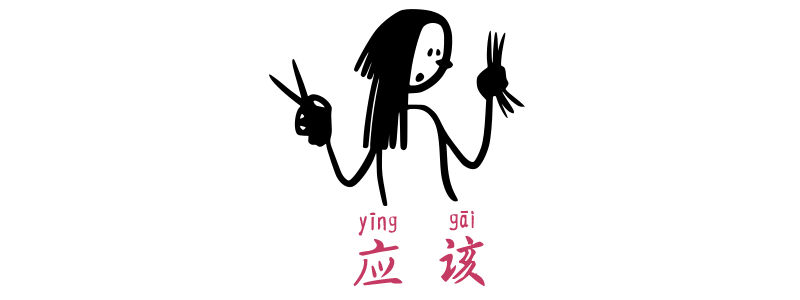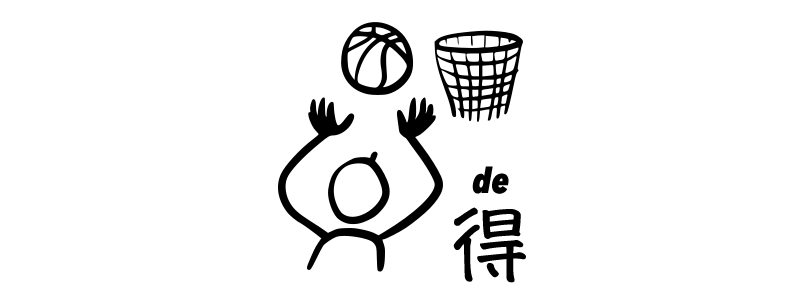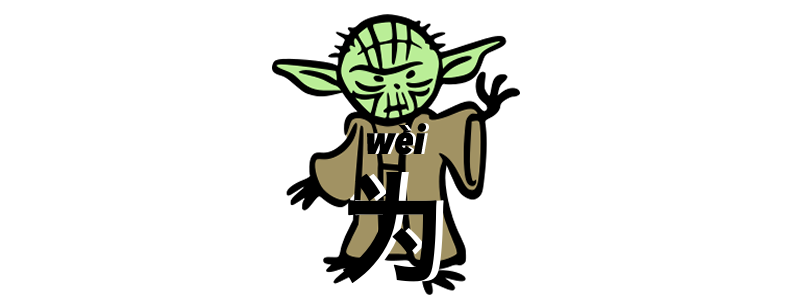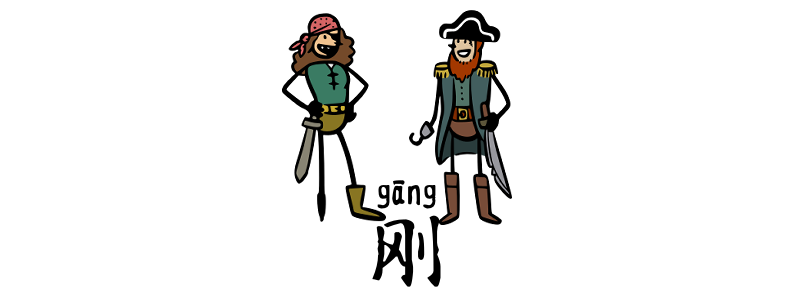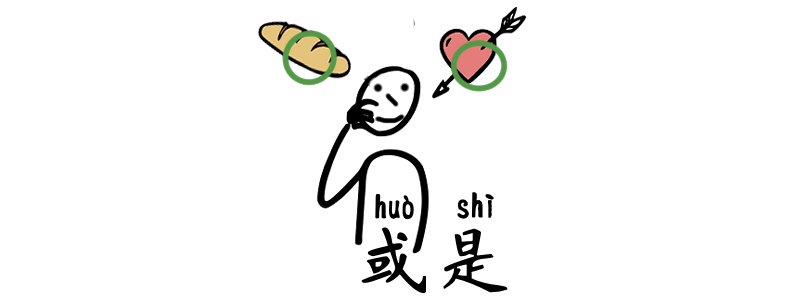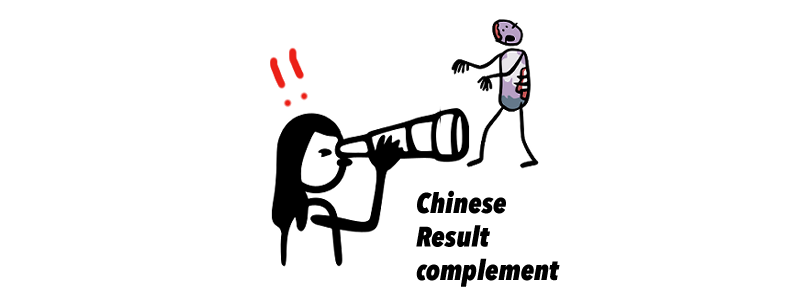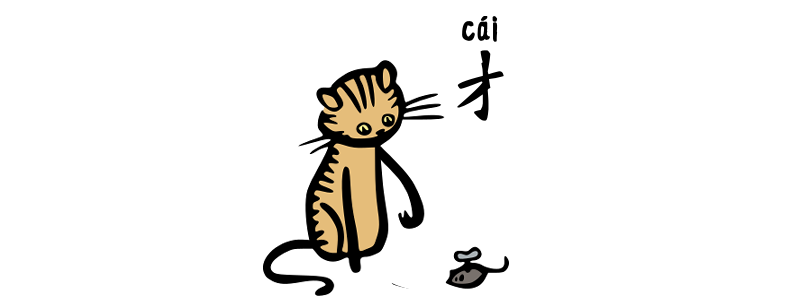Grammar Point:In Chinese grammar, the term 應該应该 yīnggāi is used to express “should” or “ought to” in a general sense. It indicates what is considered the proper or expected course of action. Structure S + 應該应该 + V + O The term 應該应该 yīnggāi can be shortened to just 該该 gāi while still conveying a…
Category: HSK 2
Chinese Separable Verbs
Why Are Chinese Separable Verbs Important? One of the key reasons is that among the 1,000 commonly used verbs in Modern Chinese, a whopping 685 of them are separable verbs. You’ll frequently come across them, especially in basic words like 睡覺觉 (to sleep), 吃飯饭 (to eat), and 看書书 (to read), when learning Chinese. Knowing which…
得 de Grammar
Grammar Point:The verb modifier 得 de comes between the verb and the complement, describing the result or state of the action represented by the verb. Structure V + 得 de + Adj. In Mandarin Chinese, the results always come after the actions. 你nǐ走zǒu得de很hěn快kuài你nǐ走zǒu得de很hěn快kuàiYou’re walking fast. 他tā睡shuì得de非常fēicháng好hǎo他tā睡shuì得de非常fēicháng好hǎoHe slept very well. 媽媽māma說shuō得de不bù清楚qīngchǔ妈妈māma说shuō得de不bù清楚qīngchuMom didn’t speak clearly. 你nǐ做zuò得de很hěn好hǎo你nǐ做zuò得de很hěn好hǎoYou did…
“For” in Chinese 1 – 為/为 wèi
Grammar Point:為为 wèi has many functions in Mandarin Chinese. In this article, we are going to discuss how to use 為为 wèi to express the meaning of “for”. Structure 為/为 + Sth or Sb + Verb It is used to express the reason or motivation behind an action. 為wèi大家dàjiā的de健康jiànkāng乾杯gānbēi为wèi大家dàjiā的de健康jiànkāng干杯gānbēiCheers to everyone’s health. 為wèi孩子háizi戒jiè菸yān为wèi孩子háizi戒jiè烟yānQuit smoking for…
Chinese Bigger Numbers
Grammar Point:In Chinese, numbers beyond 10,000 follow a different naming pattern compared to English. Understanding how to express bigger numbers in Chinese is essential for effective communication. Let’s explore the structure and naming conventions of Chinese bigger numbers. Thousands: To express numbers in the thousands (e.g., 1000, 2000, 3000), the basic numerals are combined with…
Pronouns in Chinese 2
Grammar Point:Mandarin Chinese has a relatively small number of pronouns, and unlike many European languages, there is no need to worry about subject-verb agreement. It 牠tā它tāit (for animal) 牠的tāde它的tādeits (for animal) 牠tā它tāit (for animal) 祂tā祂tāit (for God) 祂的tāde祂的tādeits (for God) 祂tā祂tāit (for God) 它們tāmen它们tāmenthey 它們的tāmende它们的tāmendetheir 它們tāmen它们tāmenthem 我wǒ家jiā有yǒu貓māo有yǒu狗gǒu, 牠們tuómen都dōu是shì我的wǒde好hǎo朋友péngyǒu我wǒ家jiā有yǒu猫māo有yǒu狗gǒu, 它们tāmen都dōu是shì我的wǒde好hǎo朋友péngyouI have both cats and dogs at…
剛剛 gānggāng and 刚 gāng
Grammar Points:The words “剛刚 gāng” and “剛剛刚刚 gānggāng” are used to indicate an action that has just happened a short while ago. However, there are some subtle differences in their meanings and usage: 剛/刚 gāng It is an adverb that can only be used before a verb or adjctive and after a subject. It emphasizes…
Expressing “either…or” with 或者 huòzhě
Grammar Point:或者 huòzhě and 或是 huòshì both mean “or” in Chinese, but they are used to express a preference or emphasis on one of the options. It can be translated as “either…or” in English. Structure Option 1 + 或者 or 或是 + Option 2 或者 huòzhě is generally considered more formal and literary than 或是…
Result Complement 1 Practice
TouchHover over the space to see the answers. Fill in the correct result complements and verbs 你nǐ( 做錯zuòcuò) 了le事shì, 就jiù應該yīnggāi跟gēn人rén道歉dàoqiàn你nǐ( 做错zuòcuò) 了le事shì, 就jiù应该yīnggāi跟gēn人rén道歉dàoqiànYou should apologize when you do something wrong. 爺爺yéye沒有méiyǒu牙齒yáchǐ, 所以suǒyǐ他tā說shuō的de話huà很hěn難nán( 聽懂tīngdǒng) 爷爷yéye没有méiyǒu牙齿yáchǐ, 所以suǒyǐ他tā说shuō的de话huà很hěn难nán( 听懂tīngdǒng) Grandpa doesn’t have teeth, so it’s hard to understand what he’s saying. 打掃dǎsǎo了le一整個yìzhěngge下午xiàwǔ, 終於zhōngyú把bǎ房間fángjiān( 打掃 乾淨dǎsǎo gānjìng) 了le打扫dǎsǎo了le一整个yìzhěngge下午xiàwǔ, 终于zhōngyú把bǎ房间fángjiān(…
Lateness 才 cái Grammar
Grammar Point:才 cái has the function of indicating an occurrence that happened later or slower than expected. It can also be used to express “as late as” or “not until” in English. Structure S + Time word + 才 cái + V 不好意思bùhǎoyìsi, 你們nǐmen先xiān吃chī吧ba! 我wǒ大概dàgài八bā點diǎn才cái會huì到dào不好意思bùhǎoyìsi, 你们nǐmen先xiān吃chī吧ba! 我wǒ大概dàgài八bā点diǎn才cái会huì到dàoSorry, you go ahead and eat first! I probably…
